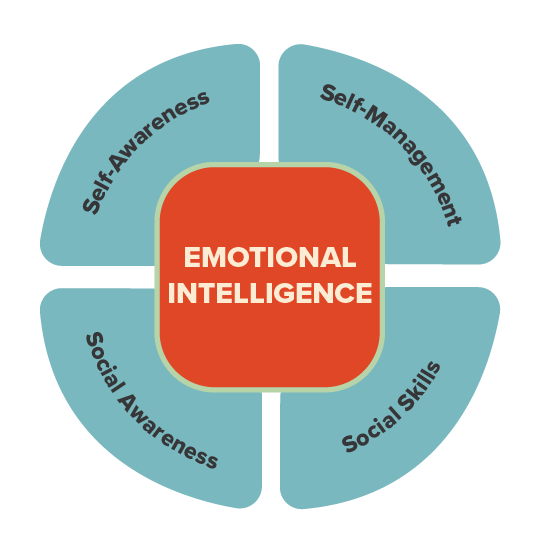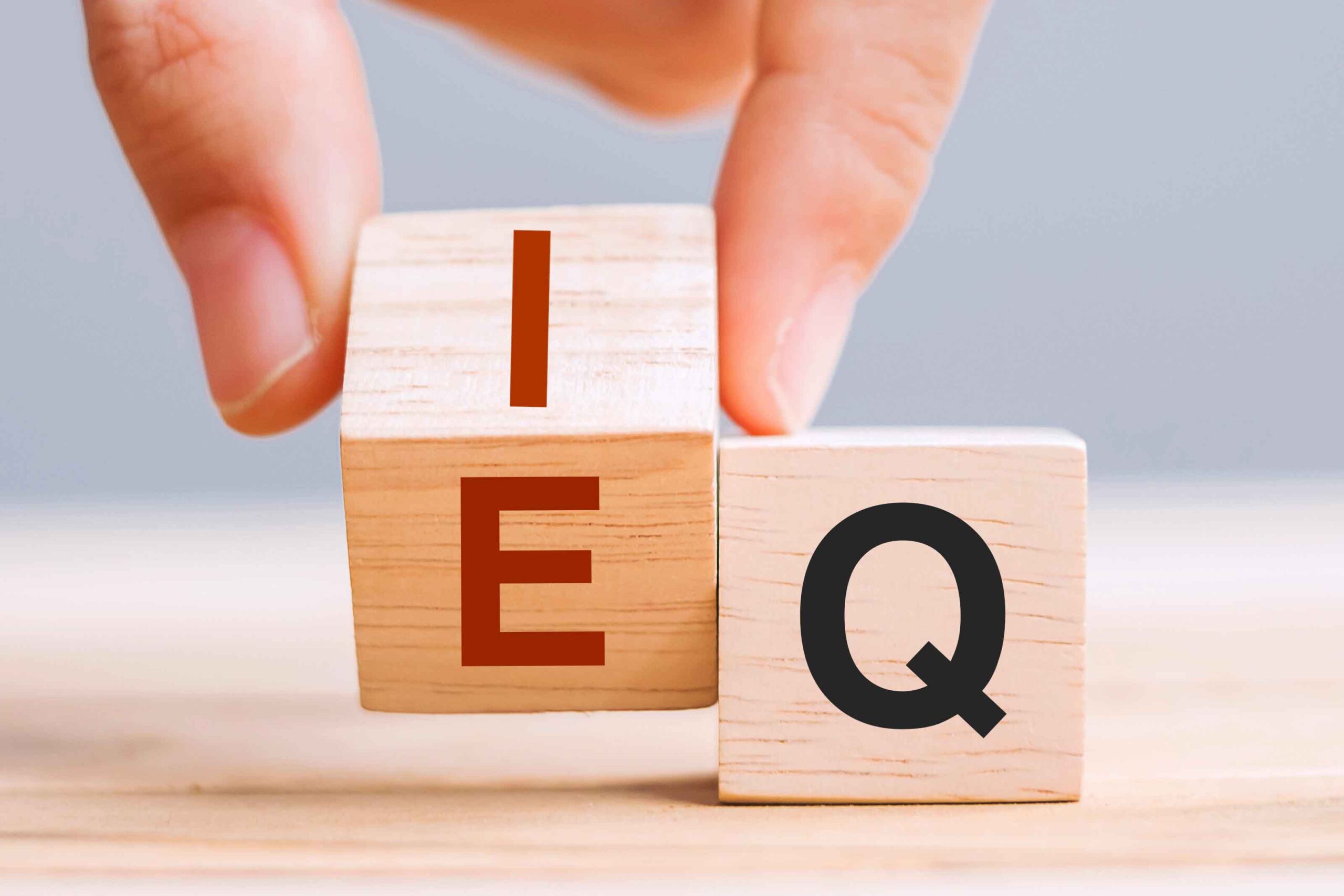Research shows your success in leadership depends more on your “EQ” than your IQ. It’s also a better predictor of success than your resume, or credentials. A leader with high emotional intelligence (EI) knows their emotional strengths and weaknesses and is adept at reading those of others. Emotional intelligence allows you to control your emotions under pressure, welcome criticism, and work through conflicts.
The term emotional intelligence was coined in the 1990s by psychology professors John D. Mayer and Peter Salovey, who defined it as, “…the ability to accurately perceive your own and others’ emotions, to understand the signals that emotions send about relationships, and to manage your own and others’ emotions.”
According to leadership speaker and author Sara Canaday, emotionally intelligent people are aware of how their emotions drive their decisions and behaviors so they can effectively engage with and influence others. Empathetic and open-minded, they can look at situations from alternative point views, bounce back from challenges and pursue their goals despite obstacles.
There are four key components of emotional intelligence:
- Self-awareness
- Self-management
- Social awareness, in particular empathy for others
- Social skills, such as proficiency in managing relationships and building networks

Why is emotional intelligence important to leaders?
Strong emotions, in particular fear, anger and desire, can adversely affect decision making. Leaders with high emotional intelligence are more likely to realize when their emotions are interfering with their thinking, so that they can employ counter measures and make more rational, impartial choices.
Psychologist and author Daniel Goleman recognized the importance of emotional intelligence to business leadership. He said, “The most effective leaders are all alike in one crucial way: they all have a high degree of what has come to be known as emotional intelligence. Without it, a person can have the best training in the world, an incisive, analytical mind, and an endless supply of smart ideas, but he [or she] still won’t make a great leader.”
Do You Lack Emotional Intelligence?
Think about your work experiences, your relationships with family, friends and colleagues, and ask yourself the following questions.
- Do you get stressed easily?
- Do you have difficulty asserting yourself?
- Do you have a limited emotional vocabulary?
- Do you make assumptions quickly and defend them vehemently?
- Do you hold grudges?
- Are you’re easily offended?
- Is it hard to let go of mistakes?
- Do you often feel misunderstood?
- Do you blame other people for how they make you feel?
“Yes” answers could indicate areas where you lack emotional intelligence.
People can have varying degrees of emotional intelligence, strong in some areas and weak in others. Peter Salovey, currently president of Yale University, underscored this point at a leadership conference where he “illustrates the disparity in the emotional intelligence of President Bill Clinton, who was remarkable in his empathy and yet so devoid of self-control.”
Improving Your Emotional Intelligence
Certain everyday actions come naturally to people with emotional intelligence. Author Justin Bariso has identified a number of them, noting they illustrate how emotional intelligence appears in the real world.
Making these actions a habit may help improve your emotional intelligence:
- Be aware of what you’re thinking and feeling, for example how your current mood is affecting your decision making.
- Observe and gain mastery over how you react to unpleasant feelings.
- Build empathy by striving to see things from the other side.
- Pause, take a moment to stop and think before you act.
- Look for benefit in criticism.
- Give helpful feedback.
- Forgive and forget.
- Praise others.
Your growth in self-awareness, self-management, social awareness and relationship building—in other words, your growth in emotional intelligence—will greatly increase your leadership potential.


